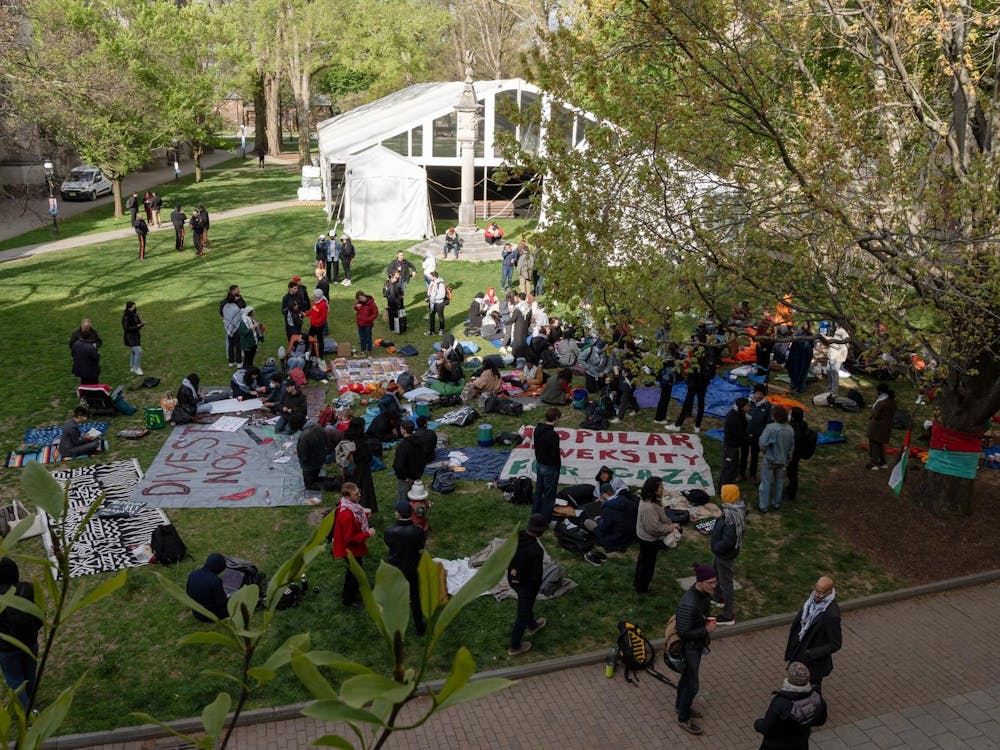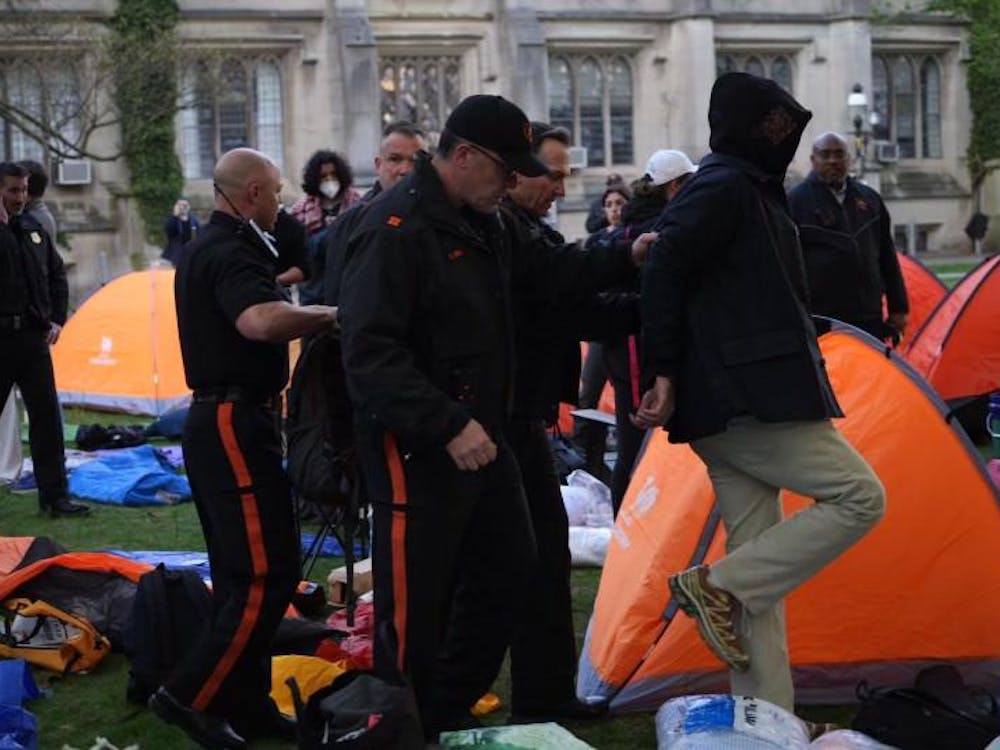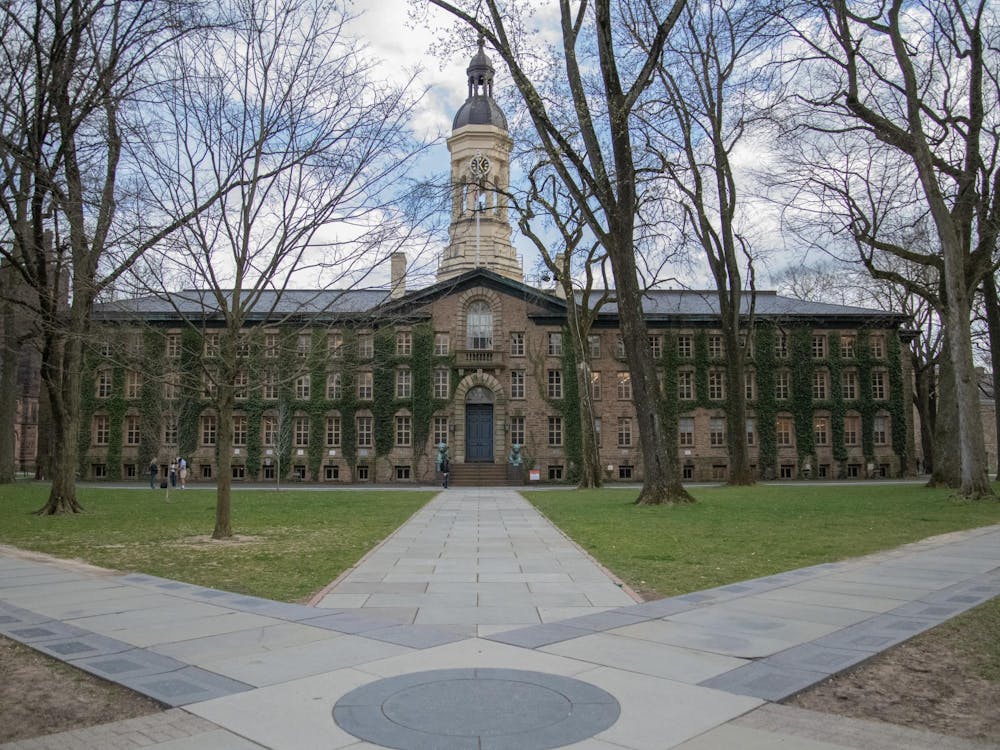A total of 157 University faculty and staff members donated directly to the presidential candidates, with only two of those donations going to Gov. Mitt Romney, the records show. Total donations directly to Obama exceeded $169,000, while donations to Romney summed to exactly $1,901.
Only one Princeton faculty member, James Shinn ’73, a visiting lecturer at the Keller Center for Innovation in Engineering Education, donated directly to Mitt Romney’s campaign. The only other donation to the Romney campaign from a University employee was contributed by Mark Oresic, a custodian in the 1903 Hall.
Sociology professor Douglas Massey GS ’78 led the faculty in presidential donations this year, donating $5,169 to Obama. University Provost Christopher Eisgruber ’83, politics professor Melissa Lane and humanities professor emeritus Toni Morrison all contributed $5,000 to Obama. Other top donors include psychology professor Susan Fiske, chemistry professor Roberto Car, Associate Dean of the Faculty Mary Baum GS ’89 and astrophysical sciences professor Robert Goldston ’77.
Former Dean of the College Nancy Malkiel donated $2,500 to Obama and her successor, Valerie Smith, donated $2,138. University president Shirley Tilghman did not donate money to either campaign.
Wilson School professor Anne-Marie Slaughter ’80, a former top official in Obama’s State Department, donated $2,000 to her old boss, and former U.S. Ambassador to Yemen under Bill Clinton Barbara Bodine, who is now a visiting lecturer in the Wilson School, donated $2,500 to Obama. Economics professor and last year’s Nobel Prize winner Christopher Sims contributed $2,000 to Obama.
Mitch Henderson ’98, the men’s basketball coach, gave $2,500 to Obama.
Some employees said their contributions were inspired by their professions, while others were influenced by their personal political beliefs.
Goldston, a former director of the Princeton Plasma Physics Laboratory, shows how the political views of faculty members can be motivated by their educational and teaching interests. Goldston said he believes the large divide between faculty who donate to Obama and to Romney can in part be attributed to Obama’s effectiveness in supporting higher education.
Although he is a major contributor to Obama, this year, on the state level, he has supported Republican Congressman Rodney Frelinghuysen out of personal interest.
“He has a very strong appreciation for the importance of scientific research and of fusion energy research and development in particular, both of which I value highly,” Goldston said.
Alongside Goldston, Fiske, also a large Obama donor, is another example of a faculty member who supports a candidate based on her own educational and teaching interests.
“A lot of my own work is on stereotyping and prejudice and diversity issues, and I think the Democrats are just hands-down better in that,” she said.

Fiske said there is a correlation between educational background and liberalism. Fiske said it is well-known that college professors are on average more liberal than the general population because their political orientation correlates with certain variables.
“Professors in general are engaged in creating knowledge, so you have to be open to uncertainty and open to things being complicated,” Fiske said. “Now, this is a big generalization, so there are many educated conservatives, but on average, my understanding is that education tends to make people more progressive,” she added.
Fiske, who said she has donated to moderate Republicans in the past, said there is even research that the speeches of liberal politicians are more cognitively complex.
Oresic, one of the few University employees who donated to Romney, cites his own religious motivation and support for the Republican pro-life platform as a primary reason for supporting Romney’s campaign. Oresic said he felt that this alone was enough to motivate his financial support.
Though Princeton students and staff may separate into liberal and conservative classifications, Oresic said he feels strongly that political debate should be able to find a healthy middle ground, even with political donations.
“I accept the political climate that is here at Princeton University, and I feel that people ought to have a right to vote with their dollars,” he said.
Goldston said he agrees the political climate can in fact benefit from supporters actively lobbying for their causes, through donations or otherwise.
“I think it’s part of the democratic process ... people [contributing] to different candidates to help them get their message out,” Goldston said.








